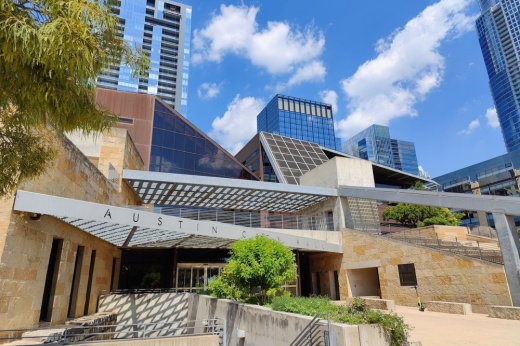The current drive to drum up public awareness comes after city officials in recent years had advanced land-use policy changes without the expansive notification for zoning updates imposed under Texas law. That issue ended the past council's contested rewrite of the entire land development code, the decades-old city rulebook governing new construction, after residents successfully sued the city for dodging state notice requirements.
"Frankly some of the criticism of what’s happened in the past has been about notice and how we’ve approached that. ... We know where errors have been made and we’re looking for ways to fix that," Mayor Kirk Watson said during a Sept. 19 discussion.
What's happening
On Sept. 21, City Council will vote to authorize a joint public hearing with Austin's Planning Commission to discuss some of the notable land-use updates that earned preliminary approvals earlier this year. Officials said the joint council-commission session would offer a rare opportunity for both bodies to sit down together and get public feedback on those measures.
The sweeping scope of the proposed regulations means that all property owners across the city would receive individual mailed notices about the meeting, an action Austin did not take during the previous land development code rewrite effort.
Put in perspective
This summer, Council Member Leslie Pool authored the "HOME initiative" that would cut down Austin's minimum residential lot size and allow for more housing per lot. The upcoming joint hearing will feature just one half of that measure—the per-lot housing unit cap—alongside a separate council proposal to eliminate Austin's residential occupancy limits.
The other piece of the HOME proposal, and other land code updates that are currently in the works, could eventually move through a similar public process.
Pool said she hopes that taking up the individual items can lead to more positive debates before revisions go into effect.
“We’ve tried in the past to make some significant changes to the land development code and it has essentially overrun the community in ways they couldn't keep up with what we were trying to do," she said. "This effort, by taking things in chunks bit by bit in a fairly measured cadence is designed in order to make sure that we do not outstrip the public because they need to understand the concepts that we’re bringing forth, and help us with wrestling them into the shape and the size that fits for Austin.”
Sending out mailers to every property in Austin could prove costly, and city staff on Sept. 19 did not have an estimate for those expenses. Details on that aspect of the plan were requested by Council Member Mackenzie Kelly and are expected before council's Sept. 21 meeting.
What's next
The proposed joint meeting, if called, would be followed by the typical civic process for code updates: the Planning Commission would then consider the items individually and provide recommendations to City Council before that body's final vote.
Watson also suggested the city may stick to the joint hearing format before moving other notable code updates across the finish line.
"From my perspective ... as we consider notice going forward on any of these items that make these kinds of changes, my hope is that we seek robust, complete notice in a way where people feel like we have a credible process, they’re not being left out," he said.





